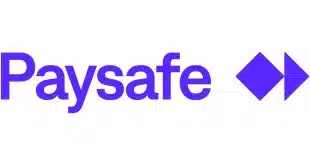Gift cards are hugely popular with consumers, and merchants that sell them are more than happy with the customer traffic, sales, and fees they generate. But the cards have been the target of a fraud-prevention crackdown in the first half of 2016.
PayPal Holdings Inc. no longer will allow items equivalent to cash, including gift cards, to be covered by PayPal’s Seller Protection program. And prepaid card provider Blackhawk Network Holdings Inc. says some grocery stores that aren’t yet accepting EMV chip cards are restricting purchases of gift cards by credit card in order to prevent fraud.
Closed-loop gift cards and open-loop prepaid cards bearing the logo of a major card network have always needed tight fraud-control measures because, if purchased with a counterfeit or stolen credit card, a prepaid card can be quickly used to buy merchandise or converted to cash via an ATM withdrawal.
To control risk, some distributors restrict the dollar amount of credit card-funded prepaid card purchases, or even ban altogether the use of credit cards to buy prepaid products.
Prepaid card providers heavily depend on retailers to distribute their products. In recent months, according to Pleasanton, Calif.-based Blackhawk, some grocery stores that do not yet have, or haven’t yet activated, EMV card-accepting point-of-sale terminals have tightened controls on credit card-funded gift card sales.
EMV terminals will make it much harder for fraudsters to use counterfeit cards, but during the long transition that officially began with the card networks’ Oct. 1, 2015, EMV liability shifts, many risk-control experts are bracing for more fraud attempts on magnetic-stripe terminals.
What Blackhawk in April termed “larger than expected headwinds” of delayed EMV implementations by many grocery partners cost it $6 million in adjusted operating revenues in the first quarter and $5 million in adjusted earnings before interest, taxes, depreciation, and amortization (EBITDA), according to its earnings report. For the full year, the revenue and EBITDA hits could be $30 million and $29 million, respectively.
“A few partners decided to take restrictive measures, and a few important partners have taken increasingly restrictive measures around the sale of higher-denomination open-loop cards during late [first-quarter] and into [the second quarter],” Talbott Roche, Blackhawk’s president and chief executive, said at the company’s April 27 first-quarter earnings conference call, according to a transcript from Thomson Reuters StreetEvents.
Prepaid cards are “soft targets” during the EMV transition, according to Ben Jackson, director of the prepaid advisory service at Maynard, Mass.-based Mercator Advisory Group Inc. “Part of the reason we’re seeing this struggle is that a lot of the grocery stores that are Blackhawk’s partners are behind on EMV,” Jackson says.
The supermarkets’ problems reflect some of the travails other merchants have experienced, including getting EMV equipment certified. Roche said that of Blackhawk’s top 25 accounts, eight were EMV-compliant, four were “tracking toward” their compliance dates, two have moved up their compliance dates, and “11 have moved back their dates,” according to the transcript.
Meanwhile, San Jose, Calif.-based PayPal, the leading online payments provider, disclosed in May that its Seller Protection program, a form of chargeback insurance for merchants, no longer will be available on “items equivalent to cash, including gift cards,” after new user-agreement updates take effect June 25.
PayPal did not respond to a Digital Transactions inquiry about reasons for the change. But risk managers also are bracing for a boom in online fraud in the wake of the EMV liability shifts. “EMV might affect that if more fraud moves online,” says Jackson.
—Jim Daly





